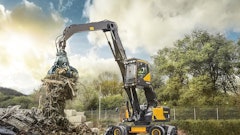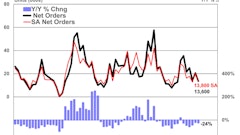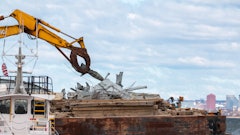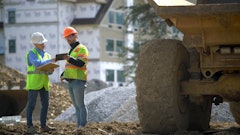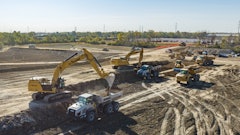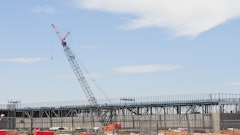
Yeah, I know, your expectation for the New Year is just to make it to the end of 2011! But let's look at it from a positive viewpoint and assume:
- 2011 will be better than 2010
- Interest rates will remain low
- The new equipment market will be very competitive
- Used equipment pricing is increasing and availability decreasing
- Rental rates are going up
- The tax cuts will remain in place
- Stimulus projects will finally hit the construction phase
- Bank financing may be easier to get
All of these should come to fruition, except perhaps the one regarding bank financing. Things are still a little tight on that end.
If my assumptions are reasonable, what does it mean to you and your company? To me, it means 2011 is the year you start to rebuild your balance sheet by making some money, because you will have more work and maybe some better pricing.
By building your balance sheet, I mean the left side of your balance sheet should increase faster than the right side. This should occur not because you aren't billing promptly or collecting your money, but because you have more work and are converting it to cash as fast as you can to be able to pay your bills. In short, you are building the equity in the company.
You can also build equity via debt reduction by selling off under-utilized equipment and paying down any debt related to those units. It's nice not to have to make that note payment every month, especially if it is for a unit that is sitting in your yard more than it's in the field making you a buck.
Take the Correct path to cash flow
New business usually means increased cash flow after collecting receivables and paying bills in the normal course of business. Done correctly, your cash balance at the end of every month is higher than the month before.
In a year of recovery, you're starting out with meager reserves and are anxious to improve your lot over the next 12 months. As such, the "done correctly" part has one aspect you need to understand: Your current equity base can only handle so much business before your ability to collect money falls behind what you need to pay.
You build an equity base through your work, which takes time to covert to working capital. That, in turn, allows you to increase work volume and so on.
A consultant recently appeared at a convention to refocus the attendees on going from point A (average return on assets) to point B (high profit group) over a five-year period with moderate sales increases each year. When someone asked why he used this approach, and why it wasn't better to go after a 25% sales increase the first year, he responded, "I wouldn't do that coming out of the recession because you could put yourself out of business." What he means is you don't have the resources to carry that level of sales, and lack the working capital to carry the expense load.
Every business has "standard" equity and working capital ratios. The equity (assets minus liabilities) is usually a minimum of 30%. Working capital (current assets minus current liabilities) is usually a percentage of sales and may be different for each type of contracting work. You should be able to find both these factors for your business. If you can't, shoot me an e-mail and I will get them for you.
Be Prepared
By "be prepared," I mean you should run your numbers for the coming year -- including the volume level you expect to reach -- and see where you stand from a profit and cash flow standpoint. You should perform these steps in any event, since you will probably need them for your bankers, especially if you plan to ask for any kind of loan increase or are thinking about equipment purchases.
If you can't prepare these worksheets, get someone to help you do it who understands your business. Again, if you need help, I know some folks who know the industry and can help you prepare your budgets for 2011 for a reasonable cost.
I know this is an equipment publication, but I have to ask you to be very careful before committing capital to equipment purchases.
All I keep hearing is that rental is going to be the preferred choice of equipment ownership for the next couple of years until the markets stabilize. But if you must buy, you can count on some very competitive pricing and financing for new equipment. On the other hand, used prices are moving up, and getting financing for used equipment may still be difficult. It's going to be a tough choice.
So as they said in the old cop show: "Let's be careful out there." Or maybe we should say, "Go get the business... but let's not overextend our financial resources."
Garry Bartecki is the managing member of GB Financial Services LLP and VP Finance for the Associated Equipment Distributors. He can be reached at (708) 347-9109 or [email protected].





